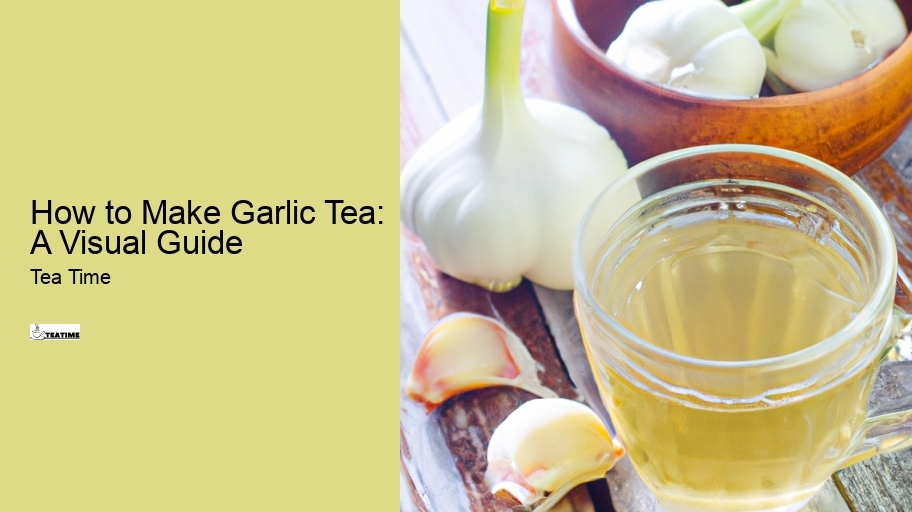

Garlic tea, steeped with the goodness of garlic, offers numerous nutritional benefits. It's a rich source of vitamins and minerals, particularly vitamin C and B6, essential for immune function and energy metabolism. Menstrual Relief The presence of manganese plays a vital role in bone health and metabolic processes.
The key compound in garlic, allicin, has potent health properties. It's known for its anti-inflammatory, antimicrobial, and antioxidant effects. These qualities contribute to the tea's ability to support heart health, boost immunity, and fight inflammation. Furthermore, garlic tea is naturally low in calories, making it an excellent choice for those monitoring their diet.
Regular consumption of garlic tea can be a simple way to incorporate these nutrients into your daily routine. Its natural composition makes it a healthful addition to any diet, offering a blend of essential nutrients with minimal calorie intake.
Serving garlic tea can be a delightful experience with the right accompaniments. To balance the robust flavor of the tea, consider adding a slice of lemon. The citrus not only adds a refreshing zest but also enhances the absorption of garlic's antioxidants. A spoonful of honey is another excellent addition, offering a natural sweetness and soothing properties.
For those who prefer savory flavors, incorporating herbs like mint or rosemary can add a refreshing twist. These herbs complement the pungent taste of garlic and add their own health benefits. Garlic tea can also be paired with light snacks, like unsalted nuts or crackers, making it a perfect beverage for a relaxing break.
Experimenting with these serving suggestions can elevate your garlic tea experience. Blood Pressure Regulation Whether you prefer it sweet or savory, there are numerous ways to enjoy this healthful brew, making it a versatile and enjoyable part of your daily routine.
Garlic tea is increasingly recognized for its potential benefits in managing blood pressure. The active compounds in garlic, particularly allicin, are believed to have a positive effect on cardiovascular health. Metabolism Boost They aid in relaxing blood vessels, which can help in reducing blood pressure levels.
Incorporating garlic tea into a regular diet may provide a natural way to support heart health. Its blood pressure-lowering effects are particularly beneficial for those at risk of hypertension. However, it's important to note that garlic tea should complement, not replace, prescribed medications and a balanced diet.
Consultation with a healthcare professional is essential before using garlic tea as a part of a blood pressure management plan. They can provide guidance on how it can fit into your overall health strategy. This ensures that garlic tea is used safely and effectively in conjunction with other treatments.
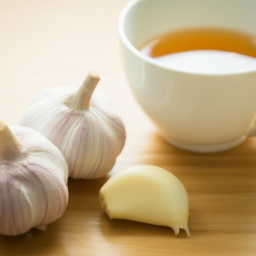
One of the appealing aspects of garlic tea is its lack of caffeine, making it an excellent choice for those sensitive to stimulants or looking to reduce their caffeine intake.
This absence of caffeine also makes garlic tea a suitable option for a wide range of individuals, including those with certain health conditions or dietary restrictions. It allows the enjoyment of a warm, soothing beverage without the concerns that come with caffeine consumption.
For those transitioning from caffeinated drinks, garlic tea can serve as a healthy alternative. It offers the comfort of a hot drink and the health benefits of garlic, all while being gentle on the body and free from the stimulating effects of caffeine.
The use of garlic in herbal teas has a storied history, tracing back to ancient civilizations. Recognized for its medicinal properties, garlic was a staple in traditional healing practices across various cultures. It was particularly valued for its ability to treat infections, improve digestion, and boost overall health.
In many traditional medicines, garlic was considered a powerful remedy due to its natural antiseptic, antimicrobial, and immune-boosting qualities. Holistic Health Herbalists and healers often prescribed garlic tea as a treatment for respiratory ailments, digestive issues, and even to ward off plagues and infections.
Today, the historical use of garlic in herbal teas continues to be validated by modern research, which supports its health benefits. The enduring presence of garlic tea in both traditional and contemporary wellness practices speaks to its effectiveness as a natural, health-promoting beverage.
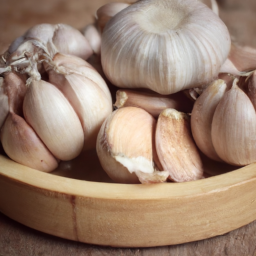
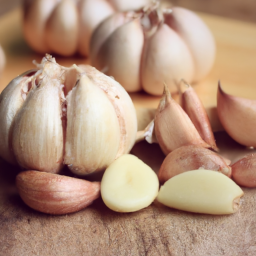
Pairing the right foods with garlic tea can enhance the overall culinary experience. For a harmonious combination, consider light and savory snacks such as crackers, cheese, or olives. These pairings can balance the robust flavor of the tea and make for a delightful snack or light meal.
For those with a sweet preference, pairing garlic tea with honey-infused bread or pastries can create an appealing contrast. The sweetness of the honey complements the pungent taste of the garlic, offering a unique flavor experience. Antihistamine Effects Fresh fruits like apples or pears can also be a refreshing accompaniment.
Experimenting with different food pairings allows for a range of culinary explorations with garlic tea.
Garlic tea is a natural choice for detoxification. Its compounds, especially allicin, have detoxifying properties that help cleanse the body. By stimulating liver function and aiding in the elimination of toxins, garlic tea supports the body's natural detoxification processes. Anti-Cancer Properties Regular consumption can contribute to overall liver health and toxin removal.
The antioxidants in garlic tea also play a crucial role in detoxification. They combat oxidative stress and help protect the body from harmful free radicals. This not only aids in detoxification but also promotes overall health and well-being.
Incorporating garlic tea into a detox regimen can be simple and effective. It's recommended to drink it on an empty stomach for maximum benefits. This natural beverage is a gentle yet powerful way to support your body’s detoxification, making it a valuable addition to a healthy lifestyle.
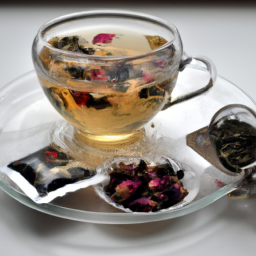
Garlic tea is generally well-tolerated, but in some cases, it can cause side effects such as bad breath, body odor, an upset stomach, or heartburn, especially when consumed in large quantities. It's advised to start with a small amount to see how your body reacts.
Garlic tea might aid in weight loss as part of a balanced diet and healthy lifestyle. Garlic can boost metabolism and help in regulating appetite, but it should not be relied on as a sole method for weight loss.
There is no standard recommendation, but moderate consumption, such as a cup a day, is generally considered safe and beneficial. It's important to listen to your body and adjust the frequency based on how you feel.
Garlic tea offers a range of health benefits due to its rich content of antioxidants and compounds like allicin. It's known for boosting the immune system, reducing inflammation, aiding in heart health by managing blood pressure and cholesterol levels, and it may also have antibacterial and antiviral properties. Additionally, it can aid in digestion and respiratory health, and some suggest it might help in weight management.